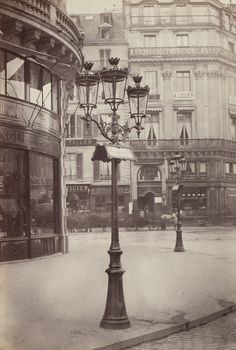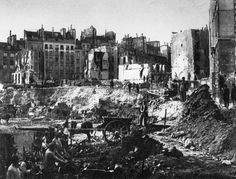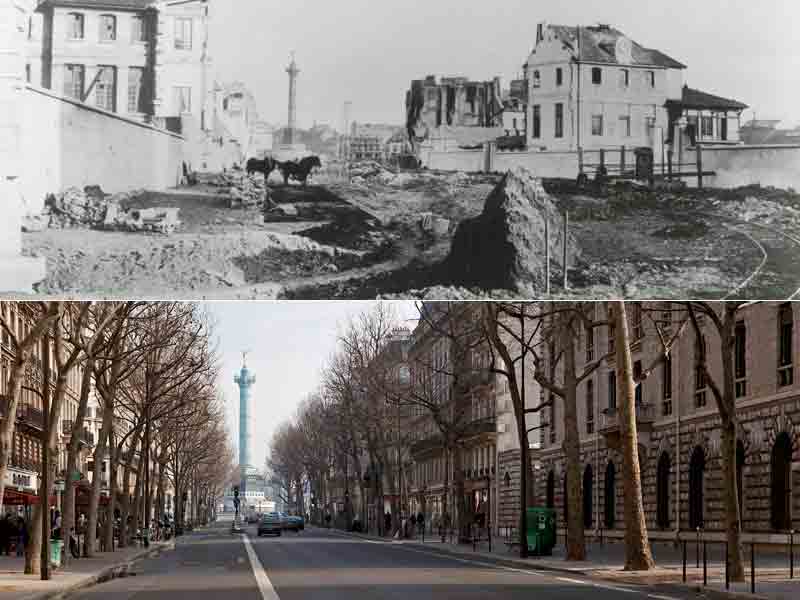Day 8 - Haussmann and the Recreation of Paris
Choices It is natural to take the environment of a city for granted and to assume that it is just "natural that it looks and feels the way that it does. But the panorama of a city is always the result of conscious or unconscious choices made in the past. Your first job today will be to think about the conscious and unconscious choices that made Paris the city that you are experiencing. To do this you will need to consider the decisions that were made in the most crucial period in the formation of modern Paris -- the 1850s and 1860s, when the Second Empire of Napoleon III remade much of the city. Values Behind choices there are always values. Before one can make a decision there must be something that suggests a particular course is better than another. This is as true in the growth of a city as in any other human activity. Thus the Paris that you see around you is the result of the values that shaped the action of decision makers at crucial moments. There were always other possibilities that might have been realized had a different set of values been dominant at the time that important decisions were made. The second task for your team today will be to define both the values that underlay the decisions made by Haussmann and Napoleon III in reshaping Paris and the values of critics of their decisions. You will need to think deeply about how life of 21st century Paris is still shaped by the values and decisions of the elite of the Second Empire and how the city might be different if a different set of values had shaped their policies. Questions to be Answered by the Teams
|
Materials for Use in Class
Background to the Changes
David H. Pinkney, from Napoleon III and the Rebuilding of Paris, pp.6-14,16-24.
Colin Jones, “Haussmannism and the City of Modernity” in Paris: Biography of a City, pp.299-301, 304-305, 308-310, 313, 316 - 319.
- The roles of Napoleon III and Haussmann
- Haussmannization and the History of Paris
- Strategies that Made Haussmannization Possible
Joan DeJean, How Paris Became Paris (New York, NY : Bloomsbury, 2014), pp,17-19.
The Nature of the Changes
Colin Jones, “Haussmannism and the City of Modernity” in Paris: Biography of a City, pp.299-301, 304-305, 308-310, 313, 316 - 319.

Reactions to Haussmannization
Clark -- Dislike of Haussmannization
Clark -- The Contemporary Case Against Haussmannization
Clark -- Lost City
Ann-Louise Shapiro, Housing the Poor of Paris, 1850-1902
Howard Saalman, Haussmann: Paris Transformed, pp.14-16
Higonnet, Nostalgia for the Old Paris
Higonnet, The Politics of Nostalgia
The Expulsion of the Poor from Paris
Charles Baudelaire, "The Swan"
Charles Baudelaire, "The Eyes of the Poor"
Haussmann's changes seen as purely military and dictatorial
How British tourists viewed Haussmann's Paris from the Victorian Paris website

